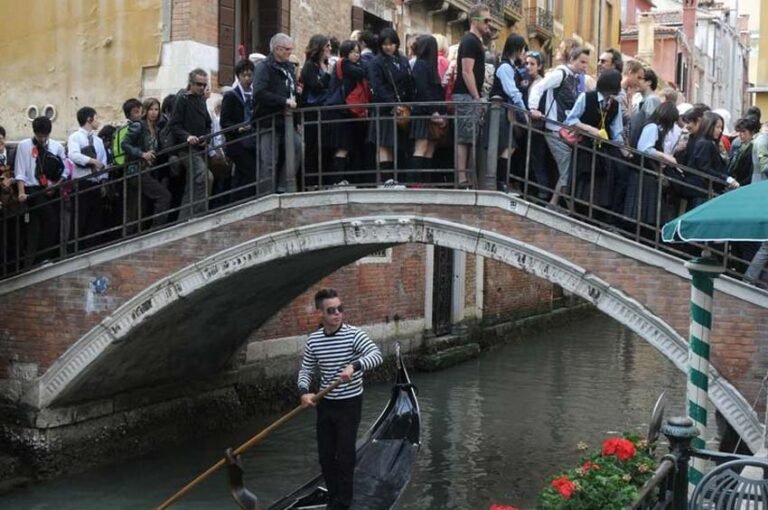VENICE: Now, a month after cruise ships were banned from the lagoon, city authorities are preparing to demand that tourists pre-book their visit on an app and charge day-trippers between $3.50 and $12 to enter, depending on the time of the year.

Airport-like turnstiles are being tested to control the flow of people and, should the numbers become overwhelming, stop new visitors from getting in.
Venice mayor Luigi Brugnaro says his aim is to make tourism more sustainable in a city visited by 25 million people a year. But he acknowledges the new rules are likely to be a hard sell.
“I expect protests, lawsuits, everything … but I have a duty to make this city livable for those who inhabit it and also for those who want to visit,” he told foreign reporters.
“It brings the wrong tone in me when I hear that I have to pay entrance just to see the buildings in the streets of the city because who decides who can go in?” said Marc Schieber, a German national in Venice for the current film festival.
“I think it is probably a new way to generate money.”
Brugnaro said authorities had yet to decide how many people was too many, and when the new rules would kick in, though they were expected to come into force between next summer and 2023.
The scheme, first mooted in 2019, was postponed because of Covid-19. During last year’s lockdown, Venetians marvelled at their city’s narrow alleys for once without throngs of tourists, the lagoon waters made pristine by the absence of motorboats.
But as visitors returned to pack St Mark’s Square this summer, officials say Venice cannot afford, for its own survival, to let the numbers go unchecked.
Some 193,000 people squeezed into the historic centre in a single day during the 2019 Carnival, before the pandemic struck. On Aug. 4 this year, the city counted 148,000, with the difference explained by the fact many U.S. and Asian travellers have still not returned to Europe.
“There is a physical limitation on the number of people that can be in the city at the same time,” said Marco Bettini, director-general of Venis, the IT company that built the monitoring system in partnership with phone operator TIM.
“We don’t want to leave anyone behind or stop people from coming to Venice. We want people to book in advance, tell us where they want to go, what they want to visit, in order to provide a better quality of service.”





